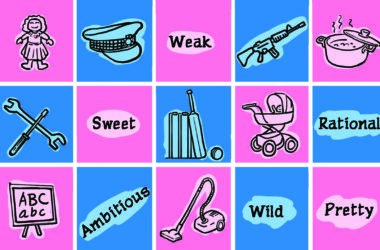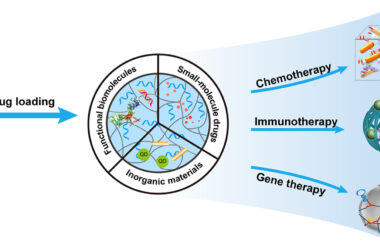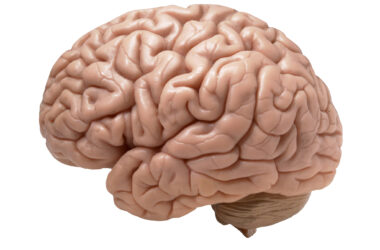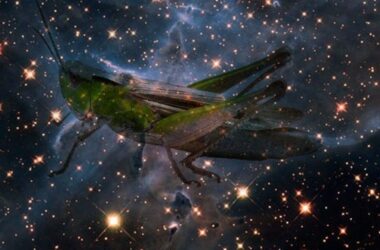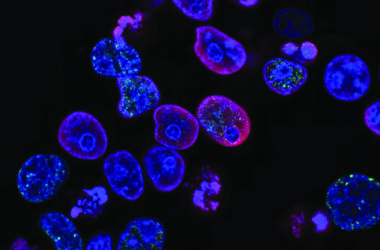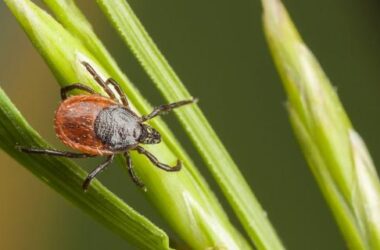Are Canadians ridiculously polite? Is Gen Z exceedingly self-absorbed? Stereotypes pervade our day-to-day lives, with their roots grounded in false notions and “othering” media portrayals. However, stereotypes of age, race, gender, and other identifiers do not exist in a vacuum—an identity consists of multiple identifiers that mesh and interlock. A[Read More…]
Ask a Scientist
Stiffer DNA hydrogels open new paths for biomedical applications
Besides acting as the backbone of genetic material, DNA is getting significant attention for being a versatile building block of nanomaterials—particles one-thousandth of the diameter of a hair strand—including a type of nanomaterial called DNA hydrogels. As a rising star in the field of nanoengineering, which is the study of[Read More…]
Call off the search for a “normal” brain
A “normal” brain—also termed “neurotypical”—has long been used in cognitive science research as a benchmark for brain activity comparisons. But this distinction between brains actually limits neuroscience research and has long escaped the notice of experts. Jakub Kopal, a postdoctoral fellow in neuroscience at McGill, researches the effect of genetic[Read More…]
Tribune Explains: What’s new with ChatGPT?
What exactly can ChatGPT do? At some point, neck-deep in research, we have all looked at a Google search result and wondered why the search engine couldn’t give us a straight answer. Well, soon, it might be able to. With the release of ChatGPT by OpenAI, a search engine arms[Read More…]
The barriers to gender-affirming care at McGill and beyond
CW: Mention of suicidal ideation Transgender, nonbinary, and gender nonconforming individuals face innumerable barriers by simply existing in a world wrought with transphobia. The U.S. National Transgender Discrimination survey report on health and health care found that transgender individuals in the U.S. are over four times more likely to contract[Read More…]
A PhD in love? Relationship advice from McGill psychologists
Valentine’s Day may be about celebrating love, but it’s also a chance to celebrate the science that helps us understand love and other intimate interpersonal relationships. The McGill Tribune spoke to Catalina Enestrom, a graduate student working at McGill’s Lydon Lab, about the latest research on the psychology of relationships. Assessing[Read More…]
Space Crickets: Creative solutions to deep-space hunger
Landing a human on Mars remains the holy grail of the exciting 21st-century space science arena, with agencies such as the Canadian Space Agency (CSA) and the National Aeronautics and Space Administration (NASA) investigating longer human-piloted space voyages. During the McGill Bicentennial Space Week last May, Julie Payette, former astronaut,[Read More…]
Shining a light on a new breast cancer vaccine’s potential
Most of us know the statistics associated with cancer. It has touched, directly or indirectly, almost every Canadian. But thanks to the relentless work of researchers, around two out of three patients diagnosed with cancer today will survive beyond five years from their initial diagnosis—up from 55 per cent in[Read More…]
Tick Talk: Fighting the spread of tick-borne pathogens
The prevalence of several tick-borne pathogens, which are living organisms or viruses that spread disease, are on the rise in Canada, including the bacterium responsible for Lyme disease. Evidence has also shown that these tick-borne pathogens have spread beyond the defined “risk areas” identified by professor Virginie Millien, an associate[Read More…]
Flying cars must make way for the real future of transportation
Elon Musk and other Silicon Valley–style futurists would like you to believe that the future of transportation holds flying cars, conveyor-belt tunnels for high-speed vehicles, and completely self-driving cars. All of these innovations are designed to free drivers from driving and the annoyance of getting stuck in traffic. While those[Read More…]
